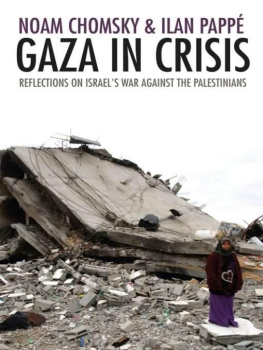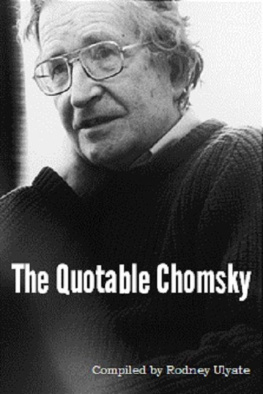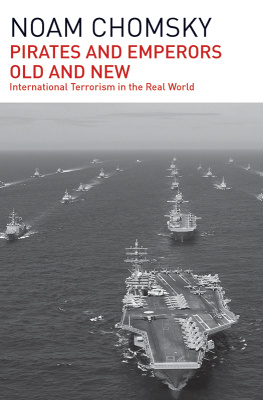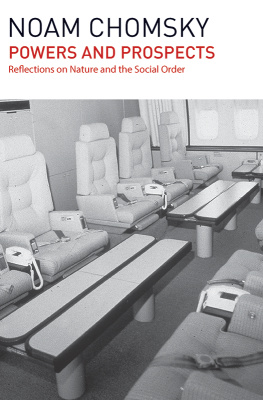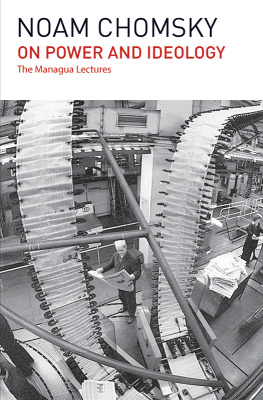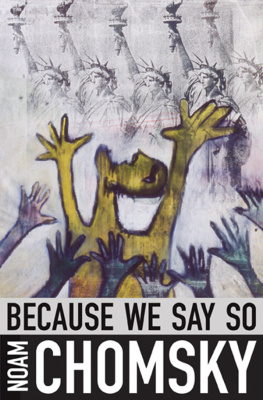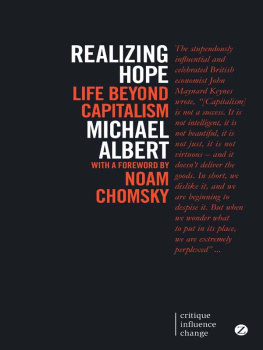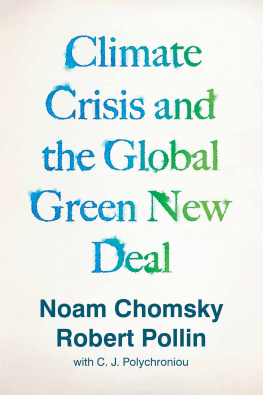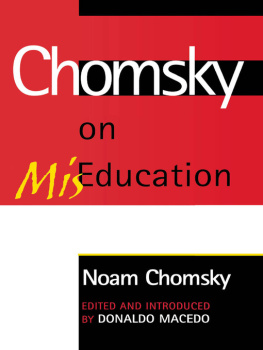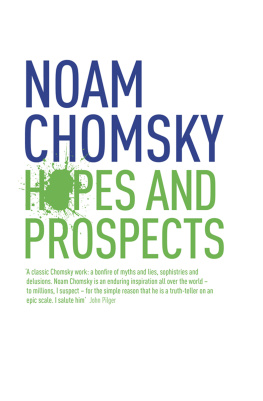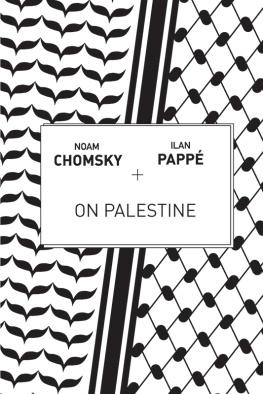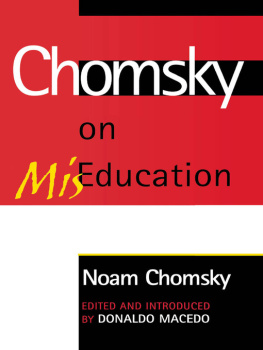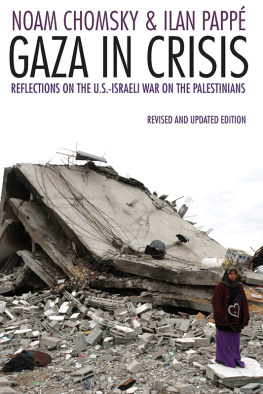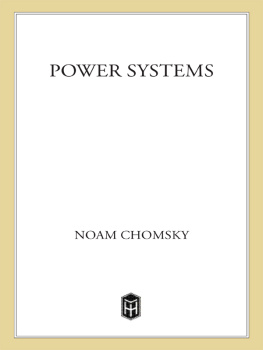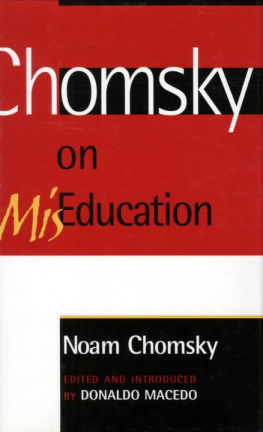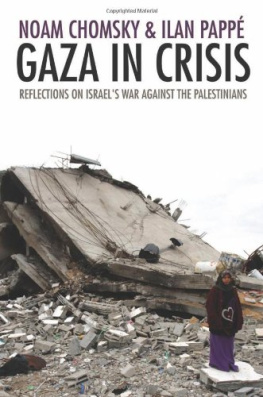Table of Contents
INTRODUCTION
When Noam Chomsky first answered my email in December 2005, I would never have imagined that five years later I would be working on a book with him. Since then, Chomsky has continued to reply to my emails and questions and we have slowly developed a steady written relationship.
A few years after that first email, thinking about how to raise awareness and reach a wider audience on the Palestine question, I asked him if he would agree to an interview. He did, and a few months later sent me his answers, which as usual were more detailed and researched than I could have expected.
The interview was well received and published on various Web sites and in publications, prompting me to consider the format an excellent way to inform and educate a public that too often has to rely on information from a corporate and profit-driven media system.
The idea of another interview slowly made its way in my head, but this time I wanted something different, something more interactive. I decided to ask the renowned Israeli historian Ilan Papp if he would participate in a joint interview/dialogue with Professor Chomsky. Papp agreed and during the next few months I worked with both of them on various questions and key topics of what is usually referred to as the Israel-Palestine conflict.
When that interview came out, probably because it was the first Chomsky-Papp interview ever conducted, it appeared in even more publications and Web sites than the first one and came to the attention of a Belgian publisher, Gilles Martin, who consequently published the interview as a booklet entitled Le Champ du possible (Aden Editions, November 2008).
Then came an offer to create an English version of that booklet. But it needed more work. I started to think about what type of book I wanted, what would be its goal and its substance. The last thing I wanted was to publish a book merely for the sake of it. Hundreds of books on the Israel-Palestine conflict already exist, some exceptional, so how would this one be different?
To answer this, I asked myself: Why has this conflict lasted for so long, who can stop it, and how? Ignorance, the people, and by popular resistance and a refusal to remain silent were the first answers that came to mind. I sincerely believe that what is happening in Palestine would never have lasted this long if the public were properly informed about what had been really taking place in this part of the Middle East.
Noam, Ilan, and I worked on the dialogue, now titled The Ghettoization of Palestine, again, gave it more insight, edited some questions, and added new ones. Ilan additionally contributed several articles addressing various crucial aspects of the Israel-Palestine question and Noam reworked his astonishing piece Exterminate All the Brutes: Gaza 2009.
Combining interviews and essays was important. On one hand, the interactive joint interview/dialogue form is a means to express and explore researched analysis and opinions in an accessible way. It also offers a more flexible and lively vehicle to share expert knowledge. The joint interview, with two of the most respected people in this field of study, one an American professor and one an Israeli historian, could fill in gaps of understanding and reach a wider audience. Both interviews address multiple topics related to the Israel-Palestine question as well as the recent Israeli Army attack on the Freedom Flotilla and, hopefully, allow readers to draw their own conclusions from two compatible yet different views.
On the other hand, the solely authored essays give the book a more in-depth analysis, scrutinizing specific periods and events in history in a new light, challenging (even more well-versed) readers in the process. Selected articles by Ilan Papp give the necessary historical background that is key to understanding Palestine today. In chapters two and three, Ilan Papp traces the historical development of U.S. involvement in the question of Palestine and the importance of Nakbah (catastrophe in Arabic) denial for Israel. Understanding the Nakbah is crucial to understanding Palestinian-Israeli history.
Chapter four is the updated and superb essay Exterminate All the Brutes: Gaza 2009 by Chomsky. This groundbreaking piece focuses primarily on the December 2008-January 2009 Israeli assault on Gaza, but also gives a thorough analysis of Israels relations with the United States and Europe, and the role of social and military resistance in Arab countries.
We return to Papp in chapters five and seven where he charts the progress of the movement for one state, and lastly, the Israeli Armys massacres in Gaza. These articles offer an alternative narrative to that which is presented by the Israeli government and I am sure will help people to reframe the conflict. The book closes with Chomskys latest reflections on the peace process.
My hope is that this book can be used as a guide in excavating the past for the benefit of a more clear-sighted present and a justice-centered future in which human rights are universal and justice restored.
Frank Barat
London, July 2010
ONE
THE FATE OF PALESTINE: AN INTERVIEW WITH NOAM CHOMSKY (2007)
What is your view of the situation in Gaza today? Could it mark the beginning of the end for the Palestinian Authority?
Some background is necessary.
Lets begin with January 2006, when Palestinians voted in a carefully monitored election, pronounced to be free and fair by international observers, despite U.S. efforts to swing the election toward their favorite, Mahmoud Abbas and his Fatah party. But Palestinians committed a grave crime, by Western standards. They voted the wrong way. The United States instantly joined Israel in punishing Palestinians for their misconduct, with Europe toddling along behind as usual. There is nothing novel about the reaction to these Palestinian misdeeds. Though it is obligatory to hail our leaders for their sincere dedication to bringing democracy to a suffering world, perhaps in an excess of idealism, the more serious scholar/advocates of the mission of democracy promotion recognize that there is a strong line of continuity running through all administrations: the United States supports democracy if and only if it conforms to U.S. strategic and economic interests. In short, the project is pure cynicism, if viewed honestly. And quite commonly, the U.S. project should be described as one of blocking democracy, not promoting it. Dramatically so in the case of Palestine.
The punishment of Palestinians for the crime of voting the wrong way was severe. With constant U.S. backing, Israel increased its violence in Gaza, withheld funds that it was legally obligated to transmit to the Palestinian Authority, tightened its siege, and in a gratuitous act of cruelty, even cut off the flow of water to the arid Gaza Strip. The Israeli attacks became far more severe after the capture of Corporal Gilad Shalit on June 25, 2006, which the West portrayed as a terrible crime. Again, pure cynicism. Just one day before, Israel kidnapped two civilians in Gazaa far worse crime than capturing a soldierand transported them to Israel (in violation of international law, but that is routine), where they presumably joined the roughly one thousand prisoners held by Israel without charges, hence kidnapped. None of this merits more than a yawn in the West.
There is no need here to run through the ugly details, but the U.S.-Israel made sure that Hamas would not have a chance to govern. And of course, the two leaders of the rejectionist camp flatly rejected Hamass call for a long-term cease-fire to allow for negotiations in terms of the international consensus on a two-state settlement, which the United States and Israel reject, as they have done in virtual isolation for over thirty years, with rare and temporary departures.


